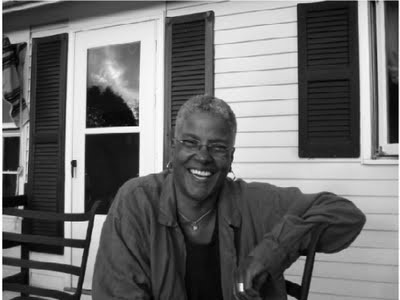Cheryl Clarke: The Never-Ending Resource that is Black Queerness

Cheryl Clarke: The Never-Ending Resource that is Black Queerness by Darnell L. Moore | Lambda Literary
"There is queer activism in the African diaspora and wherever that movement is, there is always cultural production."
I was introduced to the iconic Cheryl Clarke while organizing a conference on spirituality and sexuality with writer and scholar Ashon T. Crawley for the Newark Pride Alliance in Newark, NJ in 2008. Ashon and I marveled for days over the fact that we had engaged in a few contentious planning meetings with Clarke, and survived! Our meeting spurred an instant love affair with the black queer literary luminary whose voice, work, and life has continued to make space for our own. Since 2008, Clarke and I have been involved in several projects and after each I end by asking myself: "Why have we—black folk, queer folk, feminist folk, and other folk—yet to fully recognize this genius among us?" This is my second interview with Clarke. The first was a conversation captured between Clarke and Amiri Baraka in Newark, NJ. In many ways, this is my way of turning attention to a black queer artist whose work deserves increased attention.
Clarke was born in 1947 in Washington, DC. She received a B.A. from Howard University and an M.A., M.S.W. and Ph. D. from Rutgers—the State University of New Jersey. She is the author of several books including her collection of prose and poetry, The Days of Good Looks, and her critical work, "After Mecca": Women Poets and the Black Arts Movement. Clarke's "After Mecca" is the first scholarly work investigating the role of black women poets/writers situated within the ten-year period of 1968-78, a decade encompassing the Black Arts Movement (BAM). BAM was a political, aesthetical movement that was spurred as a result of the Black consciousness/Black Power movement as a means to further the development and transmission of black expressive culture towards the end of radical communal change. Clarke's work demonstrates that women (including lesbian-identified women) made important feminist interventions in a staunchly sexist (and heterosexist) aesthetical space and used some of BAM's tactics to advance their own movement.
Since 2009, Clarke has been the Dean of Students for Livingston Campus at Rutgers. Prior to that position, she was the Director of the Office of Social Justice Education and LGBT Communities at Rutgers.
Read the Full Interview @ Lambda Literary
Published on July 08, 2011 06:47
No comments have been added yet.
Mark Anthony Neal's Blog
- Mark Anthony Neal's profile
- 30 followers
Mark Anthony Neal isn't a Goodreads Author
(yet),
but they
do have a blog,
so here are some recent posts imported from
their feed.



